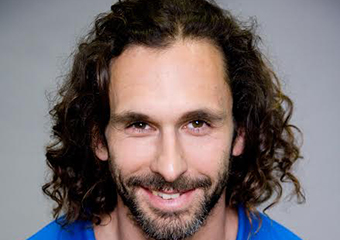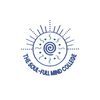
Matthew Everitt
Clicking on the Send Me Details Now button opens an enquiry form where you can message Matthew Everitt directly
One Path Osteopathy
Focus areas
Welcome to One Path Osteopathy
DR. MATT EVERITT
Dr. Matt Everitt has over 17 years of experience working in medicine. Previously, as a Paramedic he gained an excellent understanding of trauma, and medical illness diagnosis. During his time working in the emergency services he gained an appreciation for the benefits of prevention rather than cure.
He has studied a range of exercise therapies, Osteopathy, Pilates, natural human movement based techniques called Movnat, gymnastics and Ido Portal method.
Having competed at many sports including Ironman triathlon, kayak ultra marathons, Crossfit and skydiving Matt is no stranger to sports injuries.
Having found Osteopathy effective on his own injuries he studied Osteopathy in London to further his skills in injury prevention and rehabilitation.
Matt has a particular interest in sports related injuries, age related problems, nutrition, treatment of pelvic imbalance, and upper cross syndrome (deskbound neck/shoulder pain).
Matt has also conducted lectures at health and wellness seminars on primal movement patterns and their association with physiological health, and corporate wellness events on how to address desk bound movement restrictions.
He understands the importance of research and aims to remain up-to-date with current expert learnings and findings within the Osteopathic world. Ultimately, the goal behind research is to further benefit you and the treatment we provide.
Matt is caring and highly skilled. He works closely with you to ensure a rapid return to health and motivates you to attain your personal goals; be they lifestyle, sport or work related.
What is Osteopathy?
Osteopathy is a form of manual medicine that focuses on total body health by treating and strengthening the musculoskeletal framework. We use a range of techniques such as soft tissue, stretching, mobilisation, manipulation and rehabilitation exercises to rebalance the body.
Osteopaths do not simply concentrate on treating a problem area but use manual techniques to balance all the systems of the body to provide overall good health and wellbeing.
Osteopaths also focus on injury prevention. Early intervention by an Osteopath means you can be aware of potential sources of referred pain and how you can make changes to your exercise program and lifestyle so you won’t have to deal with the pain later on.
OSTEOPATHY TREATS
We cover a wide variety of injuries
- Back pain
- Sports injuries
- Arthritis
- Joint pains
- Neck pain
- Headaches / migraine
- Frozen shoulder
- Shoulder pain
- Sciatica
- Muscle spasms
- Neuralgia
- Fibromyalgia
- Rheumatic pain
- Aches and pains
- Elbow pain
- Tennis elbow/golfers elbow
- Circulatory problems, cramp
- Digestion problems
- Joint pains
- lower back pain
Fees & Timings
The initial consultation takes approximately 1 hour, and subsequent treatments take 40 minutes.
1 hour – $120, 40 mins – $90
Osteopathy is covered by most private health funds. Osteopaths are registered providers for workers’ compensation schemes, motor accident insurers and the Department of Veterans’ Affairs.
If you have a chronic condition (over 6 months) then you may be eligible for treatment through the “Chronic pain management” scheme from your GP. This gives you 8 treatments with $58 from medicare. Please call for further information.
Movement coaching
Moving well is crucial to a truly healthy and fit body.
Pre history our ancestors thrived by being adaptable, generalist movers. Their bodies were chiselled from the practicalities of life.
Our brains have developed throughout evolution as a result of our need to move. Our ancestors were highly skilled movers, able to move efficiently through a wild environment. They could run, jump, fight, crawl, climb, lift, carry etc. They were highly adaptable and learned to move in more complex movement patterns throughout their whole lives.
This underpins the development of our intelligence. We are the most intelligent creatures on the planet because we were the best movers on the planet.
To be truely fit, healthy and physically capable we must pay attention to the lessons of our ancestry.Our training should be complex, skilled, and highly variable.
Your training should use the full capability of your body to move.
If you are just doing weights, or just running on a treadmill then chances are you’re not moving in a diverse enough way. When you compare your life today to our ancestry we can see why so many of us are injured, in pain, sick and immobile.
Movement coaching brings us back to our natural ability to move. Sessions with Matt include mobility training to restore natural full range of motion to the body alongside the development of skilled movement patterns.
Matt uses techniques learned from movement specialists such as:
- Ido Portal (www.idoportal.com/)
- Ex Olympic coach and Gymnastic Bodies founder Coach Sommer (www.gymnasticbodies.com/)
- Movnat (www.movnat.com/)
- Animal Flow (www.animalflow.com.au/)
- Functional movement systems (functionalmovement.com/)
And the list goes on.
The training is lots of fun. You will use your brain as well as your body.
The personalised training sessions can also address lifestyle issues such as pre or rehabilitation for desk bound workers, or back pain prevention for manual workers.
This training is adaptable to all backgrounds and ages. It is a proven system to help you move better whether just for day to day life, or competitive sports.
If you partake in any sports we can work towards improving your game with mobility training too such as improving spinal rotation for a better golf swing, or strengthening ligaments for football players or mobility training for weightlifters.
Matt brings the opportunity to explore your natural ability to move well, then move often.
Start your journey to moving better with a free functional movement assessment.
Free Functional Movement Assessment
Movement quality is an essential component to reducing the risk of injury and reaching optimal levels of health and performance.
The Functional movement assessment identifies limitations or asymmetries in movement patterns that may lead to injuries.
These asymmetries can be treated with mobility techniques to stop injury and help you succeed in whatever physical discipline you choose.
The assessment involves 7 movement patterns which test for both mobility problems and motor control problems (your neurological control of your body)
Nearby Practitioners
View all
The Soul-Full Mind College
Focus areas

Holistic Psychology
Focus areas

Beth Little - Mind and Body
Focus areas

Annie O'Grady, Certified EFT Practitioner and Master Trainer
Focus areas
Click on Send Me Details Now to get started
Send Me Details Now